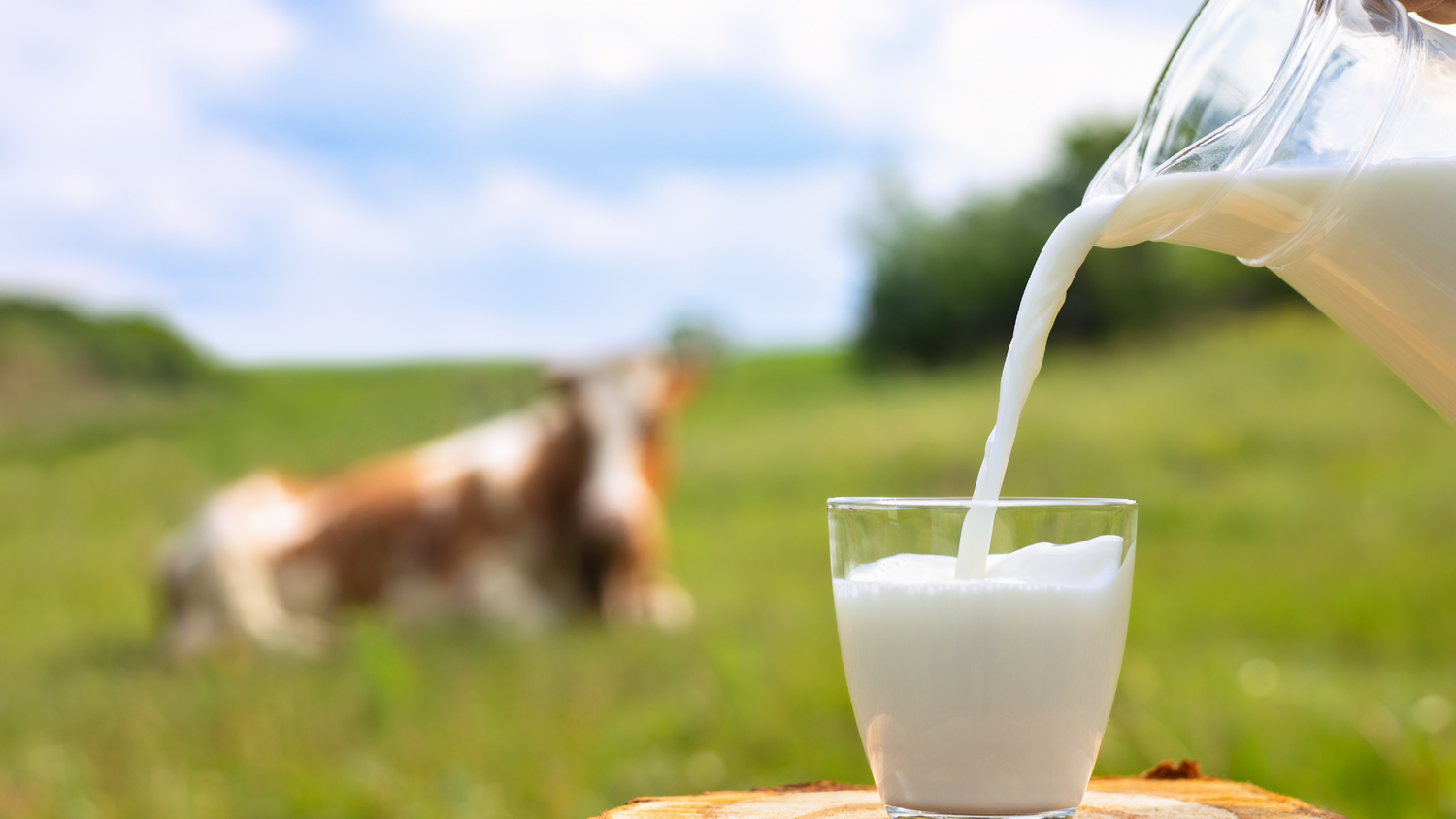Scary Dairy: Why Dairy Might Not Be as Good for You as You Think

Dairy has long been promoted as a key part of a balanced diet, thanks to its calcium content and the benefits it offers for bone health. But what if I told you that dairy may not be as wholesome as it's made out to be? For many, dairy can actually have negative impacts on health, especially when it comes to inflammation.
At the root of many chronic health issues lies inflammation. Inflammatory conditions like PCOS (Polycystic Ovary Syndrome), autoimmune diseases, and even digestive issues can worsen when inflammation levels are high. And dairy is one of the foods that can increase inflammation in the body, particularly for individuals who are sensitive.
How Does Dairy Trigger Inflammation?
One of the main culprits behind dairy's inflammatory properties is casein, a protein found in milk. Casein can be difficult to digest for many people, leading to an immune response that triggers inflammation. Additionally, lactose, the sugar in milk, can cause gut issues for those who are lactose intolerant, further contributing to systemic inflammation.
This inflammation can manifest in a variety of ways—bloating, skin flare-ups, joint pain, and for those with inflammatory conditions like PCOS, worsening symptoms like insulin resistance and hormonal imbalances.
The Dairy-PCOS Connection
Polycystic Ovary Syndrome (PCOS) is a condition that affects hormonal balance and metabolism in women. Because it’s driven by both insulin resistance and inflammation, it’s crucial to manage factors that aggravate these issues. Dairy’s impact on insulin can worsen the insulin resistance seen in PCOS, making it harder to manage weight and hormonal symptoms.
What’s more, the hormones present in commercial dairy products can throw off your own hormone balance. PCOS sufferers, who already struggle with hormone imbalances, may be more vulnerable to this added disruption.
Dairy and Autoimmune Diseases
Autoimmune diseases such as rheumatoid arthritis, lupus, and Hashimoto’s thyroiditis involve the immune system attacking healthy cells in the body. Many people with autoimmune conditions report feeling worse after consuming dairy, and there's science to back this up.
Dairy proteins, like casein, are often mistaken by the immune system as invaders, triggering an autoimmune response. Inflammation in the joints can intensify symptoms of arthritis, while autoimmune thyroid conditions like Hashimoto’s can be aggravated by dairy’s effects on gut health and inflammation.
The link between dairy and autoimmune diseases is particularly strong when we consider how gut health affects the immune system. Many autoimmune diseases are associated with "leaky gut," a condition where the gut lining becomes permeable and allows toxins, bacteria, and food particles (like dairy proteins) to enter the bloodstream. This breach triggers the immune system to go on high alert, leading to increased inflammation and exacerbated symptoms.
Dairy and Acne
If you're someone who struggles with persistent acne, you might be surprised to learn that dairy could be playing a role. The hormones found in dairy—especially in conventionally produced milk—can increase sebum production (oil), clogging pores and causing inflammation in the skin.
Additionally, dairy products can spike insulin levels, which in turn boosts the production of androgens, hormones that can lead to breakouts.
Dairy and Digestive Disorders
Dairy's impact on digestion goes beyond just lactose intolerance. For those dealing with IBS (Irritable Bowel Syndrome), Crohn’s disease, or other gastrointestinal issues, dairy can exacerbate symptoms like bloating, cramps, and diarrhoea.
People with IBS often have sensitive digestive systems that react poorly to certain foods, and dairy is a common trigger. The lactose in dairy can be poorly digested by some, leading to fermentation in the gut, which causes bloating and discomfort. Even those without a lactose intolerance may find that casein, the milk protein, contributes to inflammation in the gut lining, worsening digestive disorders like Crohn’s or ulcerative colitis.
Dairy and Asthma
Asthma is a chronic inflammatory condition of the airways, and while the link between dairy and asthma is not as universally acknowledged as some of the other conditions mentioned, many asthma sufferers report feeling more congested or having increased mucus production after consuming dairy. This mucus can exacerbate symptoms of asthma, making breathing more difficult for those prone to airway inflammation.
While not everyone with asthma reacts negatively to dairy, it’s worth experimenting with a dairy-free diet to see if symptoms improve. Reducing inflammation in the body is key to managing asthma, and avoiding inflammatory foods like dairy could provide relief.
Alternatives to Dairy
One of the main reason’s people choose milk, as I mentioned earlier, is due to its calcium and bone strengthening properties, and this is important! As you age, especially after the age of 30, bone density naturally starts to decline, and if your calcium intake is inadequate, your body will draw calcium from your bones to maintain necessary blood levels, which can lead to weakened bones over time. In women, the decline in oestrogen levels after menopause accelerates bone loss, making calcium even more important to prevent osteoporosis.
What many people don’t realise, is that calcium can be found in the foods we eat every day, and, if we’re high in Vitamin D, we actually absorb calcium better! So, eating foods like leafy greens and almonds and ensuring out Vitamin D is sitting where it should, you will actually intake more calcium than just drinking glasses of milk.
And, if you like your cereal in the morning, or need your coffee with a dash of milk, fortunately, we live in an age where there are plenty of dairy alternatives, and the bonus, they can still provide you with the nutrition you need without the inflammatory effects (and sometimes even have MORE calcium than cow milk!). Plant-based milks like almond, oat, and coconut milk offer calcium and other nutrients without the casein or lactose that can trigger inflammation. Fermented products like kefir or dairy-free yogurt are also great for supporting gut health without the inflammatory burden of dairy.
Please update the “Product” setting with the product you want to display.






